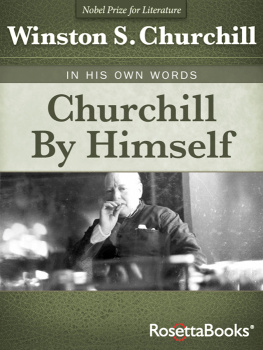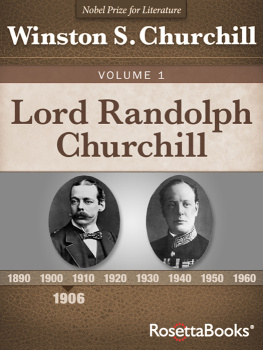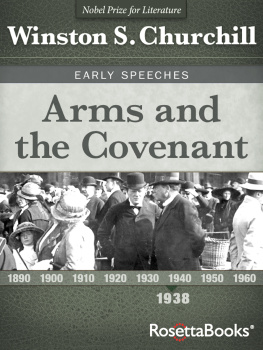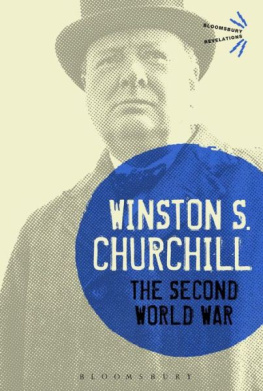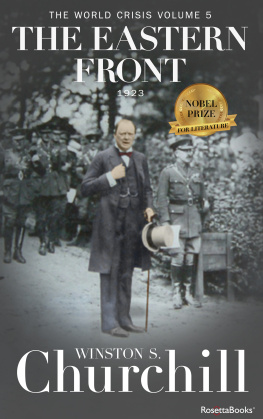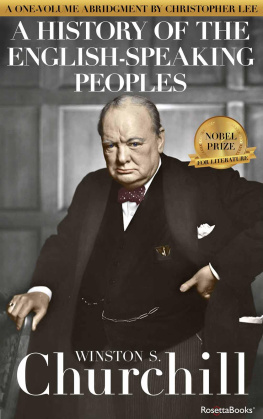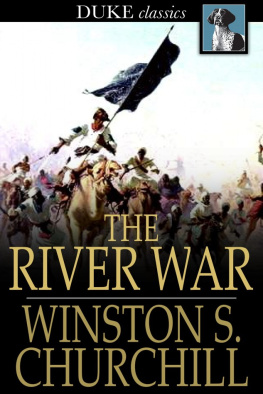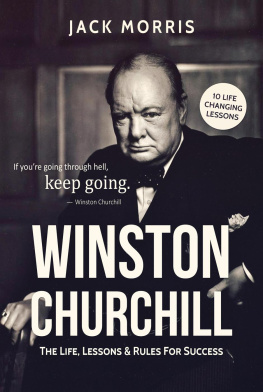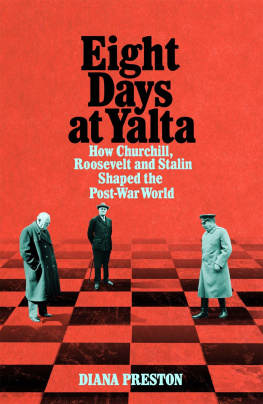Copyright
The Sinews of Peace
First published in 1948. Speeches Estate of Winston S. Churchill
Cover art to the electronic edition copyright 2014 by RosettaBooks, LLC.
All rights reserved. No part of this book may be used or reproduced in any form or by any electronic or mechanical means, including information storage and retrieval systems, without permission in writing from the publisher, except by a reviewer who may quote brief passages in a review.
Image of Winston Churchill addressing the Hague Conference reproduced by permission of Curtis Brown, London, on behalf of The Broadwater Collection, an archive of photographs owned by the Churchill family and held at the Churchill Archives Centre, Cambridge.
Electronic edition published 2014 by RosettaBooks, LLC, New York.
Cover jacket design by Alexia Garaventa
ISBN e-Pub edition: 9780795329555
INTRODUCTION
This volume of Mr. Churchills speeches covers the eighteen-month period from the fall of the Caretaker Government in June, 1945, to the close of the year 1946. The previous seven volumes of Mr. Churchills speeches, Into Battle, The Unrelenting Struggle, The End of the Beginning, Onwards to Victory, Victory and Secret Session Speeches, cover the period of the war years and contain all the speeches which he made as Prime Minister of the victorious National Coalition Government. In the period covered by the current volume, Mr. Churchill is no longer Prime Minister but Leader of His Majestys Opposition.
Britain is now at peace, but the whole world is once again confronted with many of the dangers which marked the period from 1933 to 1939. It is natural, therefore, that the accents of warning and the undertones of alarm contained in Arms and the Covenant and the first part of Into Battle should once more recur.
The national unity, which was forged in the stresses of war, dissolved with the break-up of the Coalition Government. It is inevitable therefore that the twenty-nine speeches contained in this volume should not have received the almost unanimous agreement of his fellow countrymen which greeted Mr. Churchills wartime speeches. The discriminating reader may yet conclude that the literary and oratorical quality of the speeches in this volume is as high as anything that has fallen from Mr. Churchill in the past; he may also conclude that the farsighted prescience and sure-footed judgement, unheeded at the time, which all to-day acclaim in the pre-war speeches, will be increasingly recognized in those contained in this volume.
There is however one characteristic which will be found common to all three sets of speeches, namely the quality of moral leadership. A son may perhaps not always be regarded as the most objective judge of such qualities in a father and I am therefore happy to place on permanent record the opinion of a distinguished Dutch journalist, Mr. J. H. Huizinga.
Writing in Time and Tide a year ago, Mr. Huizinga suggested that in the first two years after the war the prize for moral leadership should surely go to Mr. Churchill rather than to any of the official leaders. That is the recognition which fairness demands should be given
Mr. Huizinga continued: Who in this countryand indeed in the worldcould more legitimately claim to have displayed these virtues [of leadership], at Fulton and after, than Mr. Winston Churchill? Who had enough faith in the Western way of life, not merely to proclaim its superior merits, but to propose that something should be done to safeguard it, regardless of the threats and censure such self-protective measures would evoke from the enemies of liberty? Who showed enough originality of mind to break with the traditional conception of the quivering, precarious balance of power and to plead for the replacement of such narrow margins offering temptations to a trial of strength by a new and infinitely more stable system of retaining a balance of power in hand? Who had enough vision, imagination and insight to realise as early as the beginning of 1946 that it was practical politics to count on the Americans making such a system possible? Who was not afraid to confront the British public as early as November, 1945, when it was still flushed with the pride of victory, with the extremely unpalatable factand surely to none more unpalatable than to this proudest of Britons himselfthat the leadership in such a novel system would inevitably pass to the Americans? (The United States may be the necessary leader which is required to build up that great structure of world security.) Who dared to challenge all the popular illusions of the time? Who dared to call a spade a spade, and a Russian an enemy of democracy? Who did not hesitate to jerk the public out of its cosy intellectual haze, its U.N.O.-worship and its diplomatic make-believe, by warning that the time for generalities is past; that our difficulties and dangers will not be removed by closing our eyes to them; that peace will not be preserved by pious sentiments expressed in terms of platitudes or by official grimaces and diplomatic correctitude? Who turned the cards on the table face upwards and showed the public what sort of cards they really were more than a year before this salutory revelation received its official blessing in a strictly non-official pamphlet of the same name? In short, who has led and who has followed?
Most of the speeches in this volume centre around Mr. Churchills two famous declarations at Fulton and at Zurich. At Fulton he spoke of the Iron Curtain with which the Russians had divided Eastern from Western Europe and urged a fraternal association of the English-speaking peoples to cope with the dangers of Communist expansion. The Fulton speech drew cries of horrified alarm, not only from Communists and their dupes, but from many usually right-minded and sensible politicians and journalists. Re-reading that speech in the light of after-knowledge, many people may wonder what the fuss was all about. They may perhaps conclude that one of the most dangerous and thankless tasks in politics is to tell the truth and to give warning of danger in good time instead of late in the day.
At Zurich, Mr. Churchill developed the theme of a United Europe which he had first broached at Metz. Here again he found himself a good deal in advance of public opinion. Yet today, the cause he pleaded at Zurich is common ground among all non-Communist political parties in all of Western Europe as well as in the United States of America. The moral would seem to be that though the role of the prophet is never an easy one, ultimate acceptance of the truth can usually be counted upon, even if somewhat tardily, in the democracies of the West. We must hope that this fact will encourage public men everywhere increasingly to face the facts of the world in which we live, and to proclaim the truth however unpopular or unrewarding such a process may at the time appear.
RANDOLPH S. CHURCHILL


